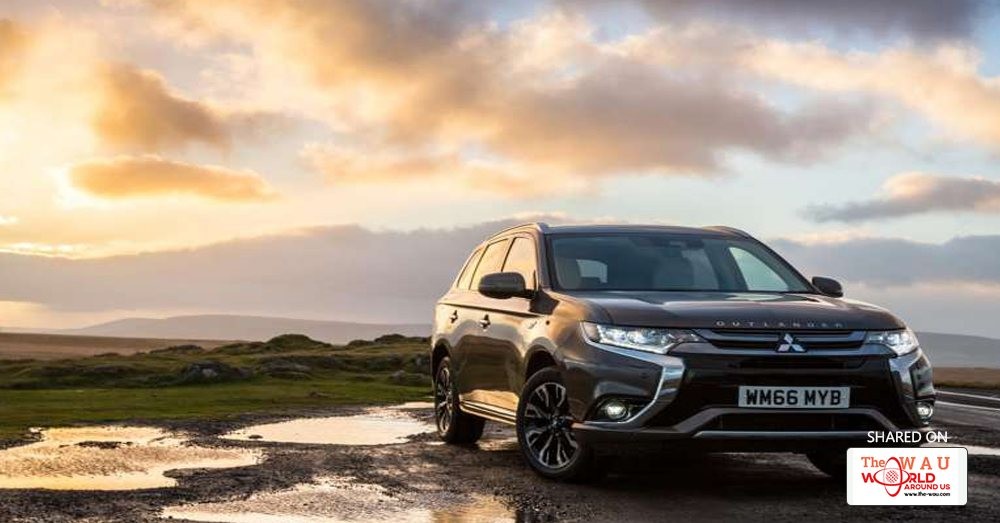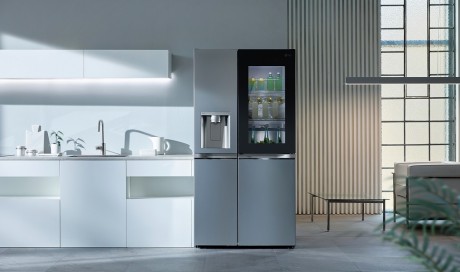Mitsubishi Outlander PHEV offers pure electric mode
Mitsubishi's latest Outlander plug-in hybrid electric vehicle (PHEV) will feature an EV Priority Mode. By activating a new switch in the cockpit, the car will operate purely on electric mode. This feature is found in other hybrids, such as the Toyota Prius.
An electronic parking brake is also new to the 2017 Outlander PHEV, as well as a brake auto hold function. The new car can be charged in approximately 25 minutes. When the batteries are fully charged, the car can travel up to 53km on electric mode. The car is due to arrive in Singapore by the fourth quarter of the year.
Honda rolls out self-balancing motorbikes
Honda's Moto Riding Assist technology will pave the way for selfbalancing motorcycles. Instead of relying on gyroscopes, which add a great deal of weight and alter the riding experience, the Riding Assist incorporates technology originally developed for the company's Uni-Cub personal mobility device.
Volkswagen extends shutdown at German plant
Volkswagen is halting production at one of its biggest factories in Germany on more days than originally planned because of shrinking demand for the Passat.
Quoting a Volkswagen spokesman, Reuters said production of the Passat at the carmaker's plant in Emden, northern Germany - which employs about 9,000 people - will be stopped on Feb 16, 17 and 21. These closures are on top of previously announced shutdowns that began last Wednesday to Feb 3, and on Feb 20.
"We are having problems in England, Turkey and Russia," the spokesman said. "Demand for the Passat is declining, we cannot rule out further shutdowns until Easter. No one knows how the world will develop."
Sale of off-peak cars more than doubles
Motorists in Singapore bought more than twice as many off-peak cars last year than in 2015. According to the Land Transport Authority (LTA), 1,904 new off-peak cars were registered last year - up from 807 in 2015 and 203 in 2014.
The trend comes on the back of a dwindling off-peak car population. As at Dec 31, there were 22,562 such cars here, down from 30,469 and 38,146 in the same period in 2015 and 2014 respectively.
The LTA was unable to say what caused the spurt in off-peak car sales last year, but motor industry players suspect private-hire operators may have started adding these red-plated cars - which attract less tax but can be driven only during off-peak hours - to their ballooning fleets.
Carmakers and oil companies form group to push hydrogen fuel
Toyota and Shell are among companies which are coming together to promote hydrogen as an alternative fuel. Others in the group of 13 include French oil company Total, according to a joint statement issued from Davos, Switzerland. The group plans to invest a combined €10 billion (S$15.2 billion) in hydrogen-related products within five years.
"In addition to transportation, hydrogen has the potential to support our transition to a low-carbon society across multiple industries and the entire value chain," Mr Takeshi Uchiyamada, Toyota's chairman and co-chair of the council, said last week.
Fuel-cell vehicles are a cornerstone of Toyota's plan to rid 90 per cent of carbon dioxide emissions from its vehicles by 2050.
BMW, Daimler, Honda and Hyundai Motor are also joining the group, reported Bloomberg.
Selected Chinese carmakers to get subsidies for green car models
China has approved the first batch of green car models for subsidies this year. They include models from domestic brands Geely, BYD, BAIC Motor and Changan.
According to Reuters, the initial list of "recommended" green energy vehicles paves the way for 185 car models to receive government subsidies.
Beijing has spent billions of dollars promoting electric and plug-in hybrid cars to help the domestic car industry develop the technology to leapfrog global competitors, while also reducing heavy urban air pollution. But the discovery of widespread cheating in the subsidy programme has prompted the government to step up supervision, cap subsidies and raise technical standards for applicants.
Share This Post












